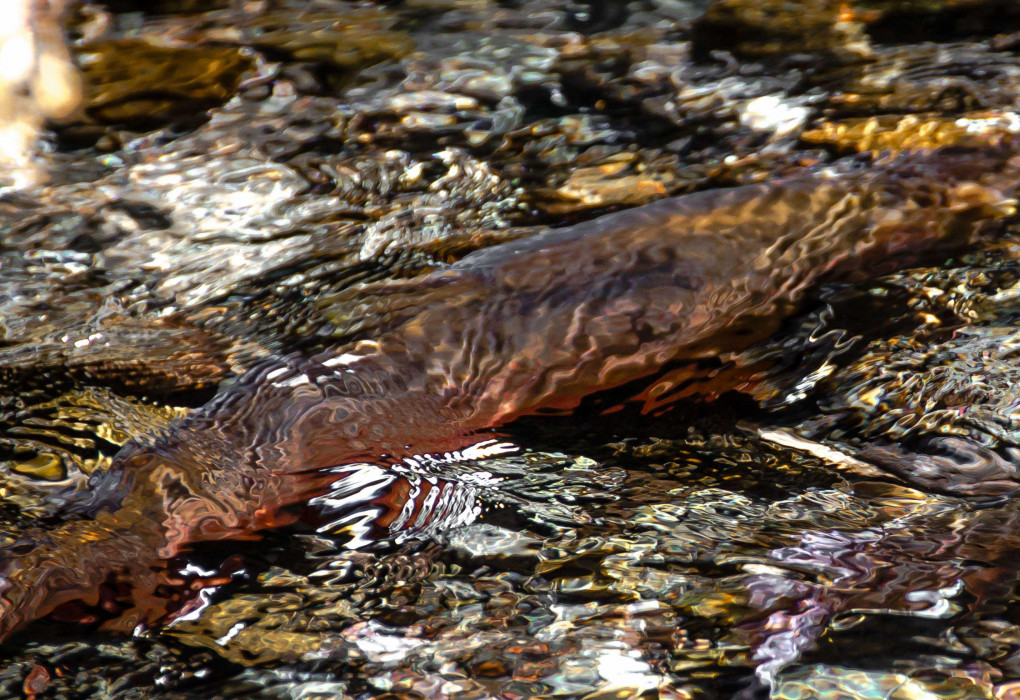... It is our ambition to do more to protect this special fishery
Dear Erik Moberly,
Thank you for your letter and response to our request for sport fishing regulation changes on the Metolius River. I am pleased with current conservation-based fishing regulations and restrictions that are currently in place above Bridge 99. As you stated, the vast majority of spawning does occur on the upper river and these fish enjoy protection from fishermen when they are at their most vulnerable. It is also fantastic news that redd counts are increasing for both rainbow trout and bull trout.
However, it is our ambition to do more to protect this special fishery; especially when considering the historical abundance that this system once supported before the logging days, construction of dams downstream and hatchery influences. We know the potential of this system and should consider regulation as a piece of the recovery puzzle.
The Metolius is bucking the trend of declining cold water ecosystems across the west because of forward looking management. To preserve the Metolius and its fishery we need to continue to be vigilant and advance the simple and effective conservation strategies that will protect fish, keep the water clean and promote respect for this incredibly special public resource.
- In response to comments concerning barbless hooks
Metolius fish are most likely caught and re-caught multiple times throughout their lives, thus compounding impacts. To best ensure survival and give them every opportunity to reproduce; this makes the handling of fish and gear that we use that much more important.
While the lower river does represent a smaller section of easily accessible (by vehicle) water when compared with the upper river, a significant amount of habitat and holding water does exist here. While a lack of detailed migratory/use studies to show us exactly how and when fish (especially redband trout) utilize these waters compared to other river sections, we know from similar systems like the spring fed rivers running into the Agency Lake in the upper Klamath Basin, that redband trout often migrate into lakes to feed and grow before returning to tributaries to spawn and seek summer thermal refugia. In the Metolius we know this is also a life history trait shared by the river’s large bull trout.
As a result, these large fish regularly pass through this lower river section and are vulnerable to gear types not conducive to releasing fish unharmed. Anecdotally, fishing in the lower section can be very productive during certain parts of the year and thus meaningfully impactful. Why not promote angling encounters with fisherman that are as quick and harmless as possible? Single hooks are as readily available as treble hooks and a quick pinch from a set of pliers is all it takes to reduce handling impacts to fish.
Below are some relevant quotes from studies supporting the argument that when compared with barbed treble hooks, single barbless hooks are indeed a good conservation tool and significantly reduce angling mortality.
“These experiments indicate that where a catch-and-release fishery is established to protect juvenile steelhead population, a single barbless hook would be of the most benefit to the fish (less mortality) and to the angler (more fish caught over time) compared to a treble barbless hook”
“Applying the established hooking efficiency and mortality rates over an identical period of time would theoretically result in the loss of approximately four times more fish to the treble hook than to the single hook”
Reingold, Beers, Meyers 1979. MORTALITY AND CATCH RATES OF JUVENILE STEELHEAD TROUT CAUGHT ON SINGLE VERSUS TREBLE BARBLESS HOOKS. Idaho Fish & Game Department. Page 3 & 4
“fish caught on barbed hooks had higher mortality rates than fish caught on barbless hooks”
Taylor & White 2011. A Meta-Analysis of Hooking Mortality of Non Anadromous Trout. Abstract
2.) In response to comments regarding the restriction of external lead weight
The harm to ecosystems from lost lead fishing tackle is well documented and should not be dismissed as being biologically insignificant. The conservation efforts on the North Umpqua River to ban external lead weight should be viewed as a progressive measure, and not conservative in nature. The accumulation of lead in river systems is a real issue in Oregon and throughout the US and it is an issue that has not been properly addressed and taken seriously.
The Metolius is one of the very few streams in Oregon that isn't listed as a "303d" water quality limited water body under the Clean Water and is the cleanest water in the state second only to a small tributary in the Blue Mountains. With so little clean water bodies remaining, let’s protect what we have left! Lead is also among heavy metals that are listed as human health hazards. There are many great alternatives to lead available on the market that do not have the same negative effects on fish and water quality.
The Metolius is as good as any ecosystem to begin further restrictions.
“Lead has long been recognized as an ecological and human health hazard because exposure to this cumulative metabolic poison has negative consequences for all organisms studied.”
DeMichele 1984, Scheuhammer and Norris 1995, Hernberg 2000, Goddard et al. 2008, Watson et al. 2009, Centers for Disease Control 2013, Chen 2013
3.) In response to comments regarding clarification of take restrictions
The current regulation language concerning “take” reads as being potentially ambiguous. There should be no room for interpretation so OSP can confidentially enforce these rules. It should specifically read that anadromous fish cannot be targeted in the system along with redband and bull trout.
Sincerely,
Adam Bronstein
Metolius River Steward

